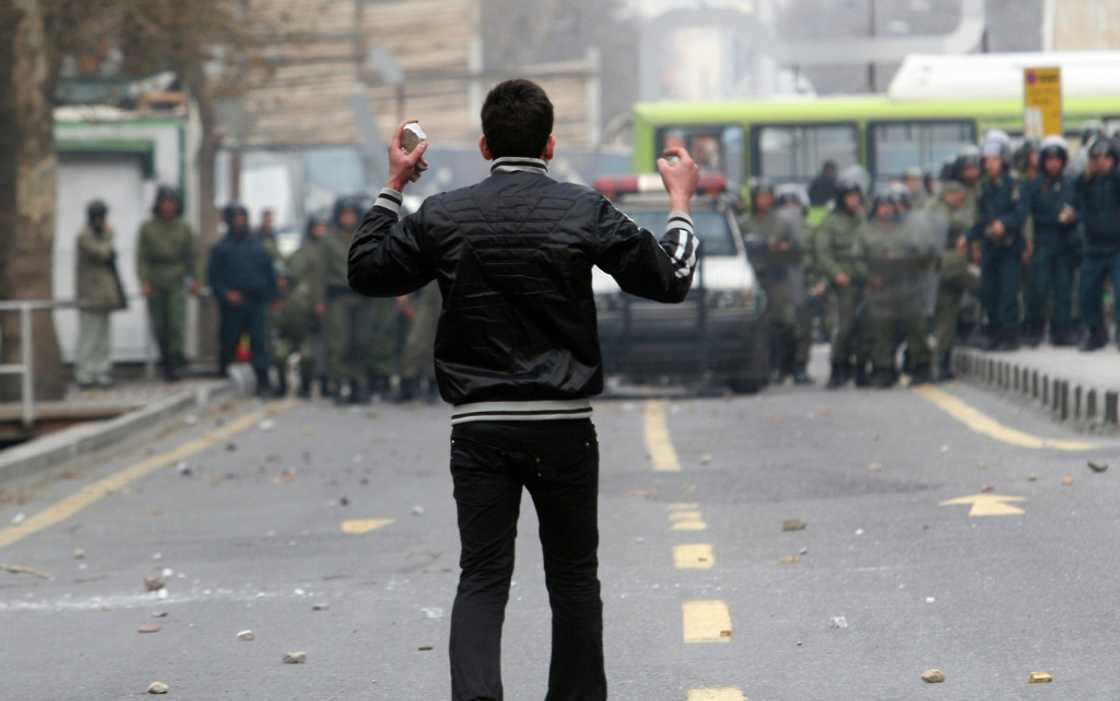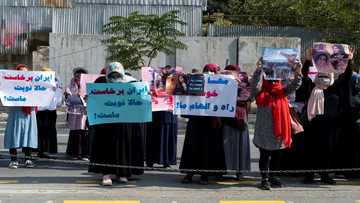Iran committed 'crimes against humanity' in 2019 crackdown: lawyers

Source: AFP
PAY ATTENTION: Сheck out news that is picked exactly for YOU ➡️ find “Recommended for you” block on the home page and enjoy!
Iran's government and security forces committed "crimes against humanity" in their suppression of huge nationwide protests in 2019, an international panel of lawyers probing the crackdown concluded on Friday.
The Iran Atrocities (Aban) Tribunal, which was convened by various human rights groups, heard evidence from over 250 witnesses as it investigated whether the Iranian regime broke international law in its response to the demonstrations.
The protests, of a magnitude rarely seen in Iran following the 1979 Islamic Revolution and being repeated across the country in recent weeks, erupted nationwide in November 2019 after a sudden hike in fuel prices.
Activists say the authorities managed to impose control only after a ruthless crackdown that, according to Amnesty International, left at least 304 people dead in a deliberate policy to shoot at demonstrators.
The London tribunal said expert evidence suggested that the actual number killed was likely far larger and possibly as high as 1,515.
"The panel unanimously finds... beyond a reasonable doubt that the Iranian government and the security forces designed and implemented a plan to commit crimes against humanity," the tribunal's six legal experts said in their judgment summary.
PAY ATTENTION: Enjoy reading our stories? Join YEN.com.gh's Telegram channel for more!
It found various branches of the regime -- from the interior ministry to the feared Basij militia -- conducted murder, imprisonment, enforced disappearances, torture and sexual violence to quell the protests and conceal its crimes.
'Case to answer'
Five of the six serving as jurists also concluded that protestors and bystanders were "discriminately targeted for their collective involvement in the protests or their perceived association" with them.

Source: AFP
They cited 161 people as perpetrators of the alleged crimes against humanity, including supreme leader Ayatollah Ali Khamenei, former president Hassan Rouhani, and nearly a dozen other senior regime figures.
"We've named some of those who are responsible in the sense of there being a case to answer," Wayne Jordash, a criminal lawyer who chaired the tribunal panel, told AFP after the judgment was read aloud at an event in London.
He said the report has particular resonance now as protesters once again face violent repression as they demonstrate across Iran over the death in police custody of Mahsa Amini on September 16.
"The current protests look like the Aban 2019 protests, and the government's response looks pretty much the same," Jordash added.
"I would be very surprised if the government isn't again engaged in a range of crimes against humanity and gross human rights violations."
'Suffered'
The Aban tribunal -- named after the Iranian month when the events took place -- was founded by NGOs including the London-based Justice for Iran, which campaigns against impunity for crimes in Iran, and the Oslo-based Iran Human Rights (IHR).

Source: AFP
It heard evidence in two public sessions held in London last November and online in February, analysing videos, written and expert testimony, and well as witnesses' verbal accounts.
Some of those witnesses and relatives of those killed or detained during the protests attended the London judgment reading and held aloft photographs of their loved ones as it concluded.
"Today, it makes me very happy -- it needed to be done a lot sooner," said Mohammad Amin, 42, an Iranian exile living in Britain since last year who witnessed the crackdown in Baluchestan, southeast Iran.
"A lot of people in my area, in my city... were injured and killed and really the people in my area suffered the most," he told AFP, speaking through a translator.
"I saw the IRGC (Islamic Revolutionary Guard Corps) and the security forces shoot up protesters... they were just killing people."
The Iranian government could not immediately be reached for comment on the tribunal's conclusions.
New feature: Сheck out news that is picked for YOU ➡️ find “Recommended for you” block on the home page and enjoy!
Source: AFP




